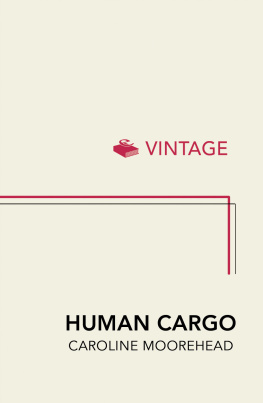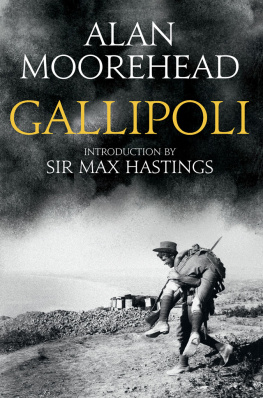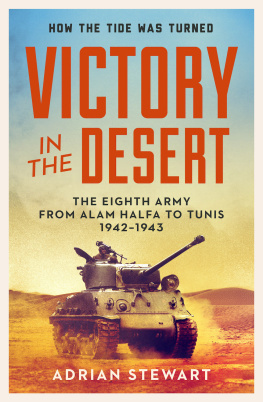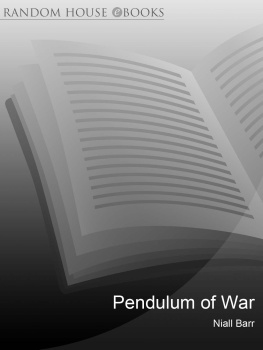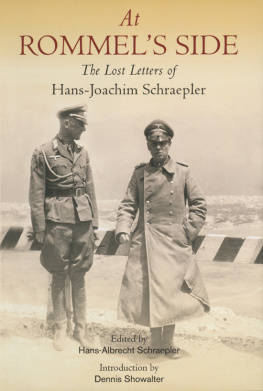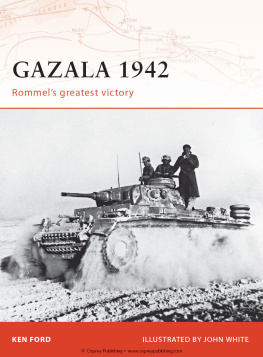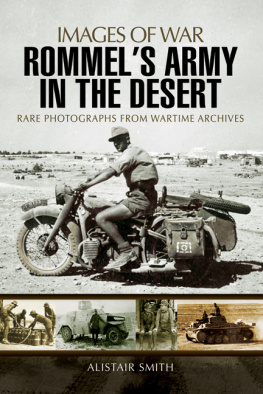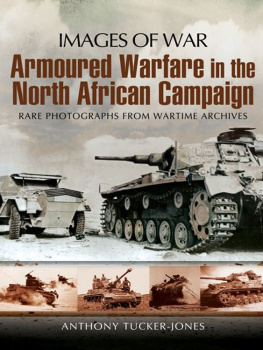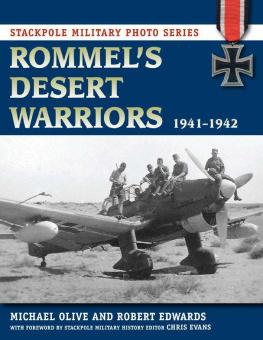Moorehead is... perfectly equipped for his task... there is something of genius in the breadth and penetration of his vision which encompasses the whole panorama of war and then narrows it down to the particular: the soldier stubbing out his cigarette before going into action, the expression on a tank commanders face as he is hit... The story of the African campaigns will go down in history as one of the great epics of mankind... largely thanks to Mr Mooreheads account which makes one of the most remarkable books of this or any other modern war.New Statesman
Alan Mooreheads eye-witness account of the African campaign is a classic... Moorehead is more than a first-class reporter. He is an artist... Some of his battle pieces stand comparison with the famous battle descriptions of Stendhal and Tolstoy.Observer
Moorehead is easily first of all the war correspondents... The book is shrewd, exciting and immensely readable. You cannot put it down.Listener
Moorehead has an inspired story to tell: no wonder he tells it so well... a grand book.Times Literary Supplement
Brilliant... imaginative... Not only has he a fine control of language, a constant curiosity that keeps him ferreting out the campaign every minute of his time, and a stimulating judgment, but he has a balanced sense of perspective... He has come closer to the soldiers than other correspondents... I cannot think of a more spacious and more bitterly living treatment.V S. Pritchett, New Statesman
I know of no writer so competent to express the atmosphere of war or to provide with a few sentences a brilliant outline sketch of a position... It is a book that one does not want to stop reading even for sleep or food... The entire situation passes before the mind as though one saw it, with its mud, dust, miseries, humorous incidents and grim happenings. I recommend this book as one of the best, if not the best book of the war.Hobart Mercury
A miracle of observation and reporting skill.Daily Sketch
A master of narrative.Illustrated London News
OTHER BOOKS BY ALAN MOOREHEAD
Eclipse
Montgomery
The Rage of the Vulture
The Villa Diana
The Traitors
Rum Jungle
A Summer Night
Gallipoli
The Russian Revolution
No Room in the Ark
The White Nile
The Blue Nile
Coopers Creek
The Fatal Impact
Darwin and the Beagle
A Late Education

Contents
BOOK ONE
Mediterranean Front:
The Year of Wavell, 194041
BOOK TWO
A Year of Battle:
The Year of Auchinleck, 194142
BOOK THREE
The End in Africa:
The Year of Eisenhower, Alexander and Montgomery, 194243

T HE WAR in Africa and the Middle East fell naturally into three phases, each lasting twelve months.
At first General Wavell had command from 1940 to 1941, and that was the year of tremendous experiments, of thrusting about in the dark; the year of bluff and quick movement when nobody knew what was going to happen. Whole armies and fleets were flung about from one place to another, and in its frantic efforts to find a new equilibrium the Middle East erupted at half a dozen places at once.
At one stage Wavell had five separate campaigns on his handsthe Western Desert, Greece, Crete, Italian East Africa and Syriaand there were other side-shows like Iraq and British Somaliland as well. Most of this was essentially colonial warfare carried out with small groups of men using weapons that would be regarded as obsolete now.
Looking back, I see what a feeling of excitement and high adventure we had then when we went off on these little isolated expeditions. We did not quite realise the real grimness of war except at certain moments. The honours between the sides were fairly even. The Germans held Greece and Crete; we held Syria, Abyssinia and all Italian East Africa. The Axis and the British were balanced in the desert.
Then General Auchinleck arrived to take command, and 194142 became the year of set battles and eventual retreat. It was no longer colonial warfare, but the war of modern European armies fighting out a decisive issue in Africa. This fighting was focused on the desert, and in that flat and limitless arena the war developed into a straight-out issue between man and man, tank and tank, army and army.
There are a thousand considerations to be taken into account, but it will have to be admitted that the Germans had the better army. They had better weapons, more soundly trained men and better generalship than we had.
Despite this stiffening and enlargement of the desert fighting, the war in the Middle East became something of a side issue through this year because Russia, Japan and America had now entered the war. Instead of being an isolated theatre, the Middle East was becoming part of world strategy.
In that black summer of 1942 it even began to look as if the Germans would reach out from Stalingrad in Russia and from Alamein, Middle East, and eventually join hands with the Japanese in India. But Stalingrad and Alamein held, and that was the turning-point of the war.
Then the final year, 194243, the year of Eisenhower, Alexander and Montgomery, the year of success. As Montgomery struck from the desert, the Anglo-American forces landed in North Africa. The tumultuous and victorious meeting of the Eighth and the First Armies in Tunisia must go down as one of the great military strokes of history.
The Middle East was secured. The Mediterranean was reopened. And far off in the East the Japanese dynamic had at last expended itself on the borders of India. Practically the whole of the British and American Empires in the Far East had fallen, but for the moment the Japanese could do no more. And at Stalingrad the Russians had begun their great westward sweep. With Africa freed, we could at last look forward to the invasion of Europe.
As each of these three separate years of battle ended in the Middle East I wrote a book describing the operationsMediterranean Front, A Year of Battle and The End in Africa. These three are now combined in this volume.
The text is essentially the same except that here and there I have made minor corrections and deletions.
When I first began to put the three books together I planned to remove many of the personal references and shape the material into a more cohesive and historical form. But I soon found this quite impracticable. It is impossible to write a definitive history of the campaigns at this stage. Too many matters are still the subject of controversy, too much is secret, so much material remains to be gathered. The war diaries and the dispatches of the commanders have still to be published.
And so these books must remain what they area rambling and personal story. I think every major happening is included, and I have tried to bind the sweep of these great events into a perspective. But it is essentially an intimate picture of the Mediterranean war from one mans point of view. There are long digressions, such as the Indian chapters and the description of my journey round the world when I left Egypt in the summer, called at New York in the fall and London in the winter, and ended a little breathlessly in Tunisia in the spring.
These journeys were essentially part of my search to obtain a wider and fuller knowledge of the war, and the digressions will be justified if they establish only thisthat the struggle which began in the desert as a simple military issue became in the end a vast imbroglio of politics and warfare in which the whole world was concerned.
Next page


![Moorehead - Coopers Creek to LangTang II. [With plates, including portraits.]](/uploads/posts/book/221288/thumbs/moorehead-coopers-creek-to-langtang-ii-with.jpg)

